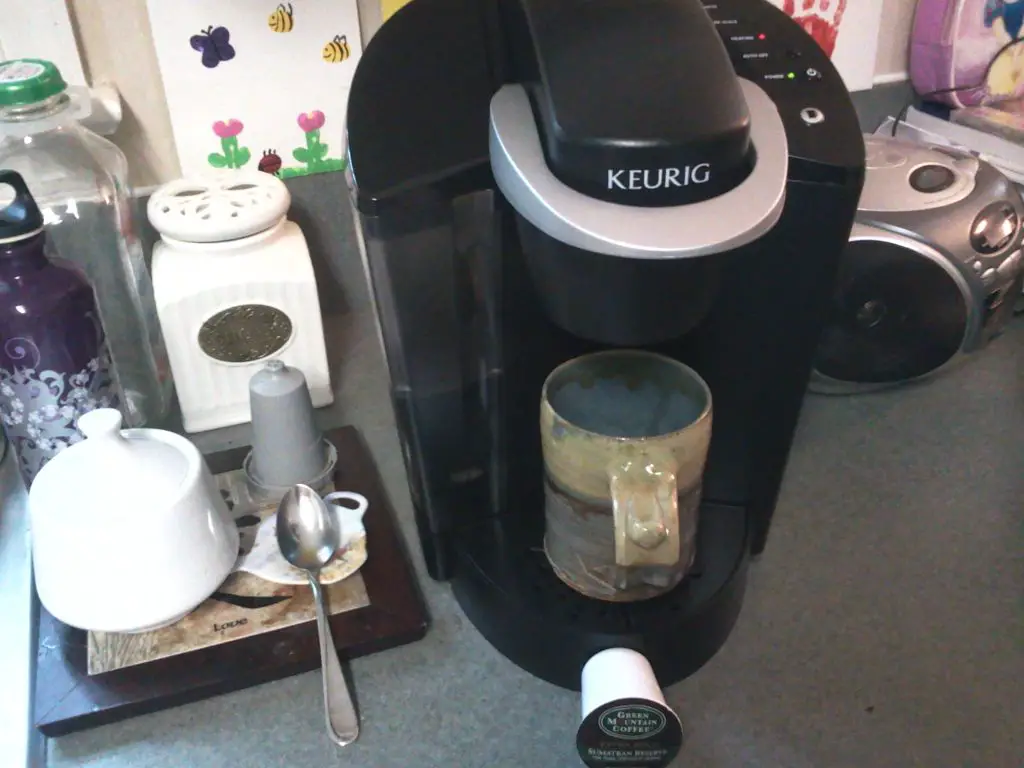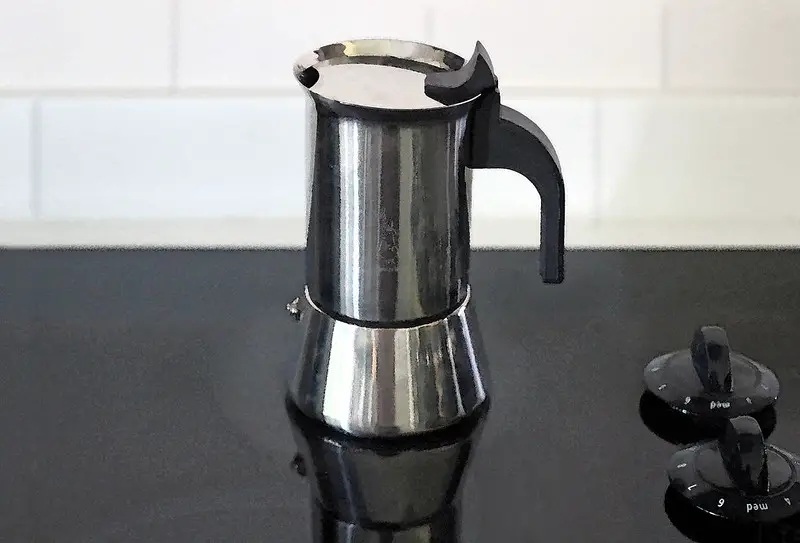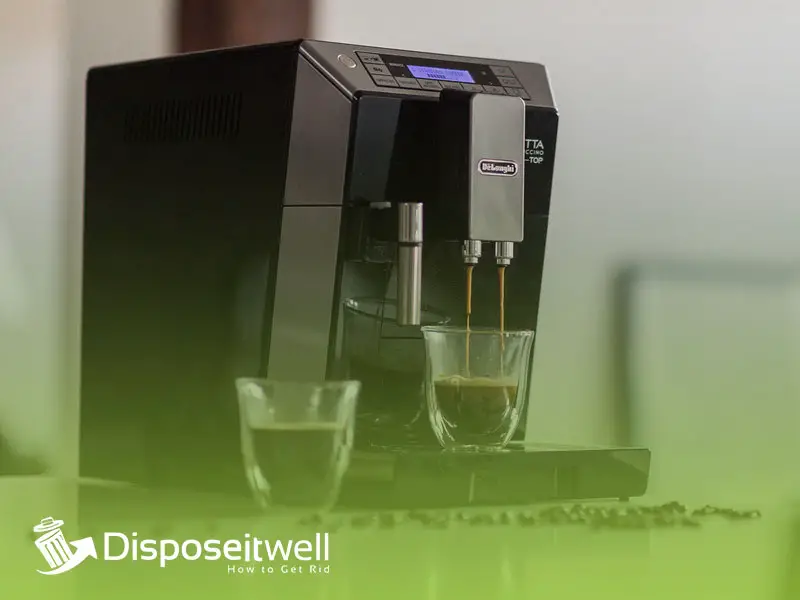When I moved out of my college dorm room and into my first apartment, I had to learn how to take care of a lot of things myself. One of the things I had to figure out was how to dispose of coffee maker. I had no idea how to do it and I didn’t want to just throw it in the trash.
After doing some research, I found out that there are a few different ways to dispose of a coffee maker. You can recycle it, donate it, or even upcycle it.
I ended up recycling mine, but it was a process. I had to take it apart so I could figure out which parts could be recycled and which could not. It was a lot of work, but in the end, I was able to get rid of my coffee maker in a way that was safe for the environment.
So whether you’re upgrading to a new coffee maker or your old one finally gave up the ghost, disposing of your coffee maker is something that should be done carefully.
After all, most coffee makers contain materials like plastic and metal that can be recycled, and you don’t want to just throw your old machine in the trash.
The most suitable option for you will depend on a few different factors. In this blog post, I’ll walk you through a few different options for disposing of your coffee maker.
How To Dispose of Coffee Maker? The Right Way

The first step in disposing of your coffee maker is to empty it of all coffee grounds and water. If you have a reusable filter, be sure to remove that as well.
Once your coffee maker is empty, give it a thorough rinse with water to remove any lingering coffee grounds. Now you have a few options to dispose of your coffee maker:
1. Donate Your Coffee Maker
If your coffee maker is still in great working condition, you may want to consider donating it to a local charity or thrift store. This is a great way to give your old machine a new lease on life while also helping out those in need.
Moreover, it is a viable environmentally friendly option if you don’t want to add to the landfill. This is because someone else can get some use out of your old coffee maker. Before donating your coffee maker, give it a thorough cleaning.
2. Trash It
If your coffee maker is beyond repair or you can’t recycle or donate it, then your only option is to trash it. When trashing your coffee maker, be sure to remove all removable parts and dispose of them properly. You should also remove any batteries from the coffee maker before throwing them away.
3. Recycle the Materials
Most coffee makers are made of recyclable materials like plastic and metal. To recycle your coffee maker, simply disassemble it into its component parts and place them in your recycling bin.
Depending on your municipality, you may be able to recycle the glass carafe as well. Check with your local recycling center to see what they accept.
If you have a local recycling program that accepts small appliances, then recycling your coffee maker there is a viable option. You can check with your local recycling center to see if they accept small appliances before you drop off your coffee maker.
Is the coffee maker recyclable?
Unfortunately, most coffee makers are not recyclable due to their electronic components and mixed materials. However, there are some more eco-friendly options on the market such as those made with biodegradable materials or those that can be disassembled for recycling. It is critical to do your research and choose a coffee maker that aligns with your values and reduces waste.
How can you reuse old coffee makers?
If you are looking for ways to improve your coffee maker, you may want to consider reusing some of its ideas.
- One way to do this is by using a thermal carafe. This can keep your coffee hot for longer periods of time, which is ideal if you need to drink it later in the day. Repurpose old coffee carafes as water or tea pitchers
- Upcycle the plastic and metal parts of the coffee maker into creative projects or decor, or repurpose them as planters or decoration pieces.
- You may want to try a reusable filter. Use the reusable filters in your brand-new coffee maker, or switch to a permanent metal filter. This can also help reduce the amount of waste that is produced each time you make a cup of coffee.
- Also, think about purchasing a reusable coffee mug. This not only cuts down on waste but also saves money by eliminating the need for disposable cups.
- Save used coffee grounds to use as fertilizer for plants
By implementing these reusing ideas, you can make your coffee maker more eco-friendly and sustainable. Also, it can prolong the life of your coffee maker.
Is a coffee maker considered e-waste?

A coffee maker would not typically be considered e-waste unless it is non-functional or contains toxic materials. But when you no longer need them and the curbside bin is not willing to accept them it means they are e-waste.
Also, there is a general rule of thumb that if you can place the plug of the coffee maker into the socket it is e-waste.
However, it is imperative to properly dispose of or recycle all electronic equipment in order to prevent harmful environmental impacts. Also, it is critical to consider the lifespan and sustainability of purchasing high-end electronic appliances, such as coffee makers, in order to reduce e-waste.
Can we throw away a coffee maker?
No, we should not throw away a coffee maker. Instead, we can donate it or recycle it. If the coffee maker is still functioning, it can be donated to a charity or given to a friend or family member. If it is no longer functional, many cities have recycling programs for small appliances such as coffee makers.
As they are considered electronic waste, throwing away a coffee maker can also be harmful to the environment. By donating or recycling it, we can prevent further pollution and help preserve natural resources.
How to dispose of used coffee grounds and filters?
One option is to compost the used coffee grounds and filters. Simply add them to your compost bin or pile, where they can break down and provide nutrients for your plants.
Another option is to use the coffee grounds as a fertilizer by spreading them around outdoor plants or mixing them into potting soil.
You can also use used coffee grounds to scrub dirty dishes or exfoliate your skin in the shower.
If none of these options work for you, dispose of the coffee grounds and filters in the trash. However, make sure to empty them out of any paper filters before throwing them away to avoid creating unnecessary waste.
Can you make tea in a coffee maker?
Yes, you can make tea in a coffee maker by using tea bags or loose-leaf tea instead of ground coffee. However, it is imperative to clean the coffee maker thoroughly before and after making the tea to avoid any unwanted flavors.
Some coffee makers may not reach the ideal temperature for brewing tea, so the resulting drink may not have optimal flavor.
Also, using it to make tea may result in a subpar cup of tea and could potentially damage the machine. It is preferable to make tea in a teapot or special tea-brewing device. It is recommended to use a dedicated tea-brewing device for the most effective results.
FAQs
How do I clean my reusable coffee filters?
To clean reusable filters:
Step 1: First rinse them with hot water to remove any loose particles.
Step 2: Then, fill a sink or bowl with warm water and a small amount of dish soap and let the filters soak for a few minutes.
Step 3: Rinse the filters with hot water and allow them to air dry before using them again.
It is recommended to clean your reusable filters after each use to prevent buildup and maintain the proper taste and flavor in your coffee.
Why is it so crucial to dispose of coffee makers properly?
Properly disposing of coffee makers helps reduce waste and harmful impacts on the environment. It also ensures that any materials, such as plastics, are properly managed and not left to pollute landfills or oceans.
Also, donating or recycling a coffee maker in proper working conditions helps extend its lifespan and benefit others. Overall, properly disposing of coffee makers is a crucial part of practicing sustainability and caring for our planet.
What are some of the consequences of improper disposal of coffee makers?
Some consequences of improper disposal of coffee makers include contributing to pollution and landfill overflow. In addition, they may harm wildlife or ecosystems if toxic materials are not properly managed.
Improper disposal can also lead to fines or penalties from waste management organizations. Moreover, it prevents resources from being reused or recycled, leading to the further depletion of limited materials. Therefore, it is imperative to properly dispose of coffee makers to avoid these negative consequences.
Verdict
As we saw, when it comes time to say goodbye to your coffee maker, there are a few different disposal options available to you. Before throwing away your coffee maker, ensure that all removable parts are removed and disposed of properly.
Disposing of an old coffee maker doesn’t have to be difficult. By following the steps above, you can recycle or donate your machine without creating any waste. Do you have any tips for disposing of small appliances? Let us know in the comments below!
Thanks for reading!
My name is Ella Vicedomine and I’m the founder of this blog. The aim is to start this informational blog to guide people on how to dispose of waste things around in the house but in the right way.

